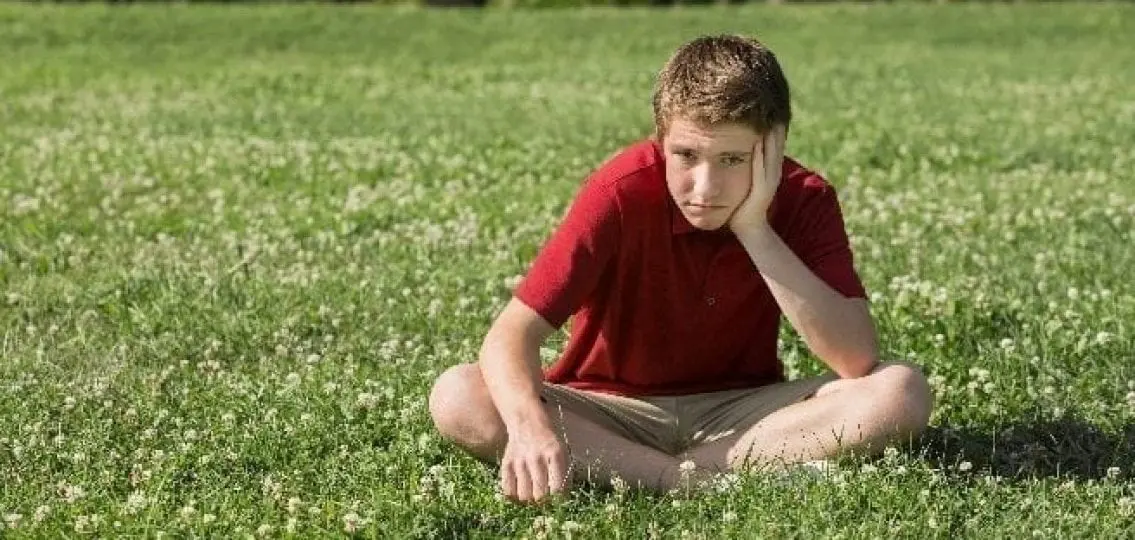My 8th grader was dumped by his posse the week before school started. Yep, the Fearsome Five decided to be the Fearsome Four, and my son was ousted.
As I shared his (my) tale of woe with my squad, they unanimously recommended I talk to the moms—three of whom were friends of mine.

But I decided to hit pause on that plan as I ran through the conversation in my head. “Your kid is being mean to my kid.” Even to my Mama Bear ears, it sounded wrong. After all, they’re not four. I couldn’t see the win. Truthfully, I worried it might even worsen the situation for my kid. So I decided to keep my mouth shut and let the situation work itself out.
And guess what? My instincts were right on.
(That doesn’t happen much so let me revel, if you don’t mind.) Much as parents want to fix their teens’ friend problems, they can’t, says parenting expert Rosalind Wiseman, author of Queen Bees & Wannabes.
“Even though it comes from a good place, getting involved in anything related to friends can be super embarrassing to your teen,” she says. What’s the tipoff that you’re about to be that parent? It’s the moment you hear that self-righteous tone in your head—“I’m going down to that school!” Or, “I’m going to call that mom!”
“Nothing good will come from getting involved,” she says. “You are reacting from your own anxiety and can’t advocate for your child in a sane and healthy way.”
Furthermore, she says, when you dive into the popularity pool, you’re taking away your child’s power and their ownership of the issue. She will be less likely to come to you the next time she has a problem.
So what can we do for our kids in their quest for a satisfying (and healthy) teenage social life?
Parental Role in the Social Life of Teenagers
Here are some answers to 4 questions you’ve always wanted to ask.
1. What does a healthy teenage social life look like?
Parents often wonder which scenario is best—a big group of friends or one tight bestie. Each has their ups and, of course, downs. On the one hand, the group shifts loyalties on a regular basis. On the other hand, the BFF is unavailable because of a busy sports schedule, a budding romance, or a fall-out.
Regardless of age, the answer to how many friends you really need depends on your personality and life circumstances, says Irene S. Levine, Ph.D., psychologist and creator of The Friendship Blog.
Some people prefer to have one or two close friends, while others thrive on having a wider circle.
“The key is to avoid judging your child’s need for friendships by comparing them to other teens or even to yourself,” she says. While you might want to be the life of the party, they might prefer a smaller tribe. Both can still be healthy social lives.
One lesson to share with your teen is the benefit of cultivating different friends to meet different needs—maybe Stella is your confidante, but Emma ups your tennis game.
Mari Chazen of Menlo Park, California, says her son once observed, “I love how you have so many different types of friends—your golfing friends, your yoga friends, your college friends, and your cheese club friends.” She was gratified because she had tried to model those different types of relationships to her teens, Sam, 17, and Annie, 15. She wanted to show them the benefits of diverse friendships in their own teenage social life.
If your child seems overly reliant on just one kid, it might be wise to help him expand his horizons. Try to encourage your teenager to get involved with other groups, “whether it’s by joining a team or club or volunteering,” Levine suggests.
And even though transportation may be a pain, it’s smart to encourage friendships in other towns if the occasion arises. Having a friend outside the school social circle can help smooth over rough spots, especially if, say, your son didn’t get invited to the “it” party or all your daughter’s friends are attending the upcoming school dance.
2. What do you do when your kid is being left out?
We know that sitting at home alone on a weekend happens to virtually everyone. But when it happens to your kid, it can be agonizing to watch. The pain is worse when she has to watch all of her friends having fun on social media.
“Being left out is tough on a kid and tough on the parent,” Levine says. She recommends sharing stories of times when you experienced a similar disappointment in your own teenage social life. Explain that friendships are often fickle—and that no one can expect to be liked by everyone. And, she says, “Remember that your teen is often more resilient than you might think at the moment.”
Of course, your own tales of overcoming friendship purgatory are bound to occasionally—or always—fall on deaf ears.
That’s when you offer distraction, Wiseman advises. “Say, ‘That sucks. And I totally respect whatever you want to do tonight. Eat a pint of ice cream, see a movie, or play music really loudly.”’ And above all, she says, thank your child for trusting you by sharing their disappointment.
When the “being left out” becomes a recurring problem, and your child seems to have no social life, remember that there is a reason, even if your child doesn’t know what it is—or doesn’t want to admit it.
“Parents will say, ‘Other kids stopped talking to my kid for no reason,” Wiseman says. “There’s never ‘no reason.’” If you want to clue in to what is going on in the social dynamic, you might have to dig a little deeper. She suggests taking a moment when you’re relaxed and no siblings are around. Ask your child how other kids might describe him.
The goal, she stresses, is not to blame your child for her social standing. The goals is to help her examine what she is doing that might be contributing to the problem. Or, help her understand that maybe some friendships just evolve over time.
3. What if … gulp! … your kid is the mean girl or boy?
Sometimes, it’s our kid who’s the problem. Most of us know a mom who’s a genuinely nice person, but has the daughter who is what Wiseman calls “ruthlessly popular.”
“We assume the parents don’t know. But many do. And they are mortified by their child’s behavior and don’t know how to handle it,” Wiseman points out.
If you sense that your child is the one creating the issues, be sure to talk with her about her antics.
If she’s actively bullying others on social media, it’s your cue to step in. But if she is playing her popularity card in more subtle ways, you may just have to back off.
“It can be cringe-worthy when your child is hell-bent on being popular,” Wiseman acknowledges. She suggests parents also examine their own behavior, especially as it relates to social media. “When your friends constantly comment on the pictures you post of your kids, consider that teens are just trying to get that same response with their posting.” That, in and of itself, can be a conversation-starter about intent and reactions on social media.
4. So what’s good about these struggles?
As parents, we know that the socially awkward teenager often becomes highly sought after at the high school reunion (See: Romy and Michelle’s High School Reunion). And, in the best-case scenario, even at the prom (See: Every John Hughes flick ever made).
What’s more, the ups and downs of teenage social life impart valuable lessons.
“Even adults constantly negotiate social relationships in school, at work, and around the neighborhood,” Levine points out. “The friendship lessons teens learn will teach resilience and help them become more independent adults who can better handle social relationships.”
Of course there are some times that you should truly worry, she adds, noting parents should be on the look-out for sudden changes in a child’s eating, sleep, or socialization patterns. “If a teen is suddenly doing poorly in school, isolating him or herself, or lacking self-confidence, definitely check in with your child and consider seeking advice from a counselor or mental health professional.”

Other than that, Levine says, parents can always find reasons to worry, but they should look to their children to see whether they are actually unhappy with their teenage social life, or if the parents are projecting that on them.
“The bottom line is that we may want one conversation to solve the problem, but steel yourself,” warns Wiseman. “You’ll be having multiple conversations on the theme of popularity and friendship for years.”




